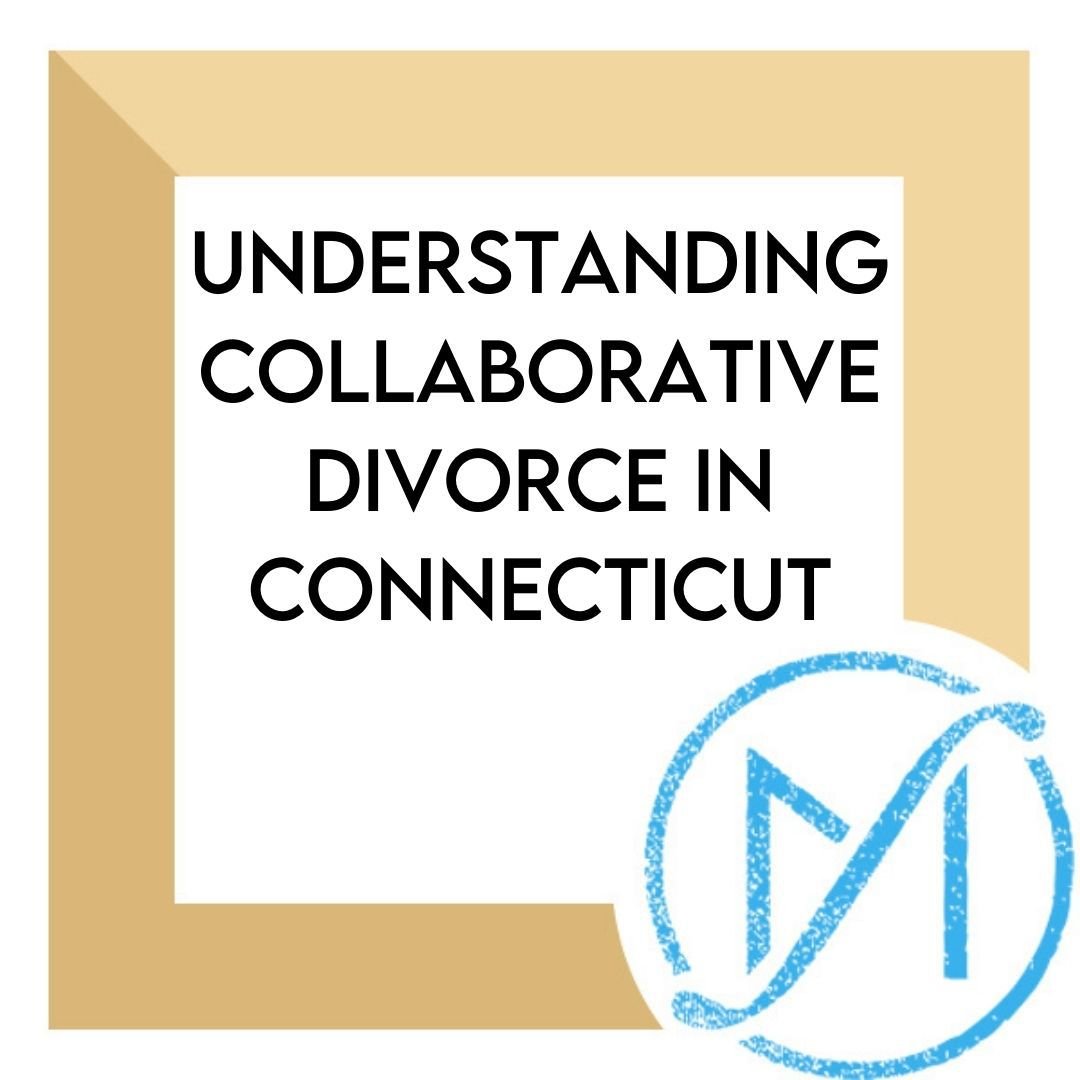Understanding Collaborative Divorce in Connecticut

Updated November 27, 2023
When considering a divorce, it’s vital to understand that Connecticut has three ways to get divorced. They are litigation, mediation, and collaborative divorce. This blog answers the three most common questions clients ask about the least familiar – collaborative divorce.
If you’re seeking a more amicable alternative to courtroom battles, collaborative divorce may be the solution you’ve been searching for.
In this comprehensive guide, we will dive deep into the world of collaborative divorce, exploring how it can help you navigate the legal process with minimal stress and conflict.
Collaborative divorce is a unique approach that encourages divorcing couples to work together, with the guidance of trained professionals, to reach a fair settlement outside of court. Unlike traditional litigation, which often fosters hostility and animosity, collaborative divorce promotes open communication, respect, and cooperation.
Throughout this guide, we will answer all your burning questions about collaborative divorce, including its benefits, how it differs from mediation, and the steps involved in the process. We’ll delve into the role of various professionals, including attorneys, financial experts, and mental health specialists, and how they can support you through this emotional journey.
If you’re curious about how collaborative divorce could be the key to a smoother separation, keep reading. Let’s explore this innovative approach that prioritizes harmony and understanding during one of life’s most challenging transitions. You’ll leave understanding collaborative divorce in Connecticut.
I’ve Heard of Collaborative Divorce, But What Exactly Is It?
Collaborative divorce is an alternative dispute resolution method that allows couples to work together to dissolve their marriage in a more peaceful and cooperative manner. In a collaborative divorce, both parties commit to resolving their issues outside of court, with the assistance of trained professionals, such as attorneys, mental health specialists, and financial experts.
One of the key principles of collaborative divorce is the commitment to open and honest communication. Instead of approaching the divorce process with a win-lose mentality, collaborative divorce encourages couples to focus on finding mutually beneficial solutions that meet the needs and interests of both parties. This approach aims to minimize conflict and promote a more amicable and respectful separation.
In a collaborative divorce, the emphasis is on problem-solving and reaching a settlement that works for both parties and any children involved. It provides a structured process that allows the couple to have control over the outcome, rather than leaving the decisions in the hands of a judge. By working together, couples can avoid the stress, expense, and emotional toll of a courtroom battle.
How Does Collaborative Divorce Work?
Collaborative divorces happen outside of court in a private setting. The lawyers in collaborative divorces go through highly specialized training and ongoing education to address conflict and disagreement creatively and calmly, allowing a couple to refocus and find productive resolutions. Both spouses must agree to the process and hire collaboratively trained attorneys to proceed with a collaborative divorce.
Then, both spouses and their collaborative attorneys sign a collaborative participation agreement where everyone commits to resolving the divorce outside of court through negotiation.
Read: What Is Collaborative Divorce?
What are the Differences Between Collaborative Divorce, Mediation, and Litigation?
Collaborative divorce offers a middle ground between mediation and litigation. Like mediation, collaboratives happen outside of court. That said, in mediation, spouses meet with one neutral mediator. In a collaborative divorce, spouses each have their own attorney. The collaborative process is designed to be less time-consuming, less expensive, and less confrontational than a litigated divorce. It reduces stress and anxiety, so spouses can focus better on resolving issues. In addition, the spouses can use the money they save in the collaboration to engage other neutral experts. For example, the collaborative team might consist of a mental health professional serving as a divorce coach and a child specialist to help design the parenting plan. Or, a neutral financial professional (often a CPA) may help structure property division and alimony. Regardless, all professionals involved require collaborative divorce training to participate in this approach.
Am I a Good Candidate for Collaborative Divorce?
Freed Marcroft’s attorneys handle divorces via all three approaches: mediation, litigation, and collaborative law. Your Freed Marcroft legal team will help you understand the pros and cons of all three to choose the right approach for you and your family. For example, as with mediation, spouses’ willingness to communicate, move forward, and openly share financial information are critical components of collaborative divorce. However, unlike mediation, you’ll have your own attorney by your side. And, because of the privacy and the availability of neutral experts, collaborative divorces can work well even for complicated high-net-worth divorces with complex assets. Plus, the flexibility of the collaborative divorce can benefit those with complex scheduling needs, including when a spouse is located out-of-state or internationally.
Freed Marcroft’s legal team has extensive experience in all three divorce options. However, it is most important to us to design a custom-tailored divorce to meet your goals and your family’s needs. We want to help you pick the right approach and then create a divorce to get you on to living the life you deserve.
Ready to Take The Next Step? Contact Freed Marcroft
Our first step at Freed Marcroft, the Goals & Planning Conference, is designed to get to the heart of your problem and unveil your actual goals. Then, we take those goals along with the facts of your case and analyze them to present you with recommendations and options for moving forward. So schedule your Goals & Planning Conference today, or contact us here.








